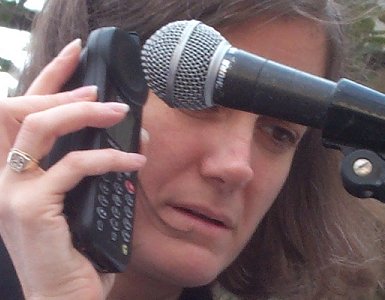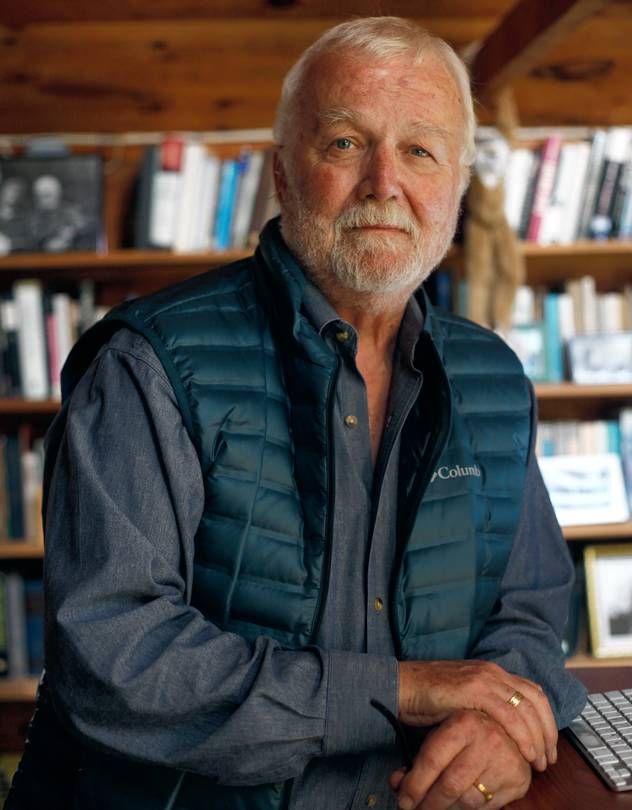 Russell Banks. Pinterest
Russell Banks. Pinterest
In a nearly post-literary world it’s important, for the sake of our culture and society, to grab onto a great literary talent like a lifeline, like Queequeg’s wooden coffin rising from the whirlpool of death to save Ishmael. To ride the waves that “rolled for five thousand years,” to roll ever still, open to such wisdom and truth as Moby-Dick bequeathed us during the height of the American Renaissance in literature in the mid-1800s.
I’m writing with a certain urgency of spirit because Russell Banks died on January 3rd. He was, in my opinion and that of many others, arguably America’s greatest living fiction writer. Greatest living creative writer, period. Of course, such things are always arguable. But Banks is right at the crest of the mountaintop. Consider esteemed opinions:
“Like our living literary giants Toni Morrison and Thomas Pynchon, Russell Banks is a great writer wrestling with the hidden secrets and explosive realities of this country.” – Cornel West
“if the United States were to adopt Japan’s admirable policy designating a few extraordinary individuals as living national treasures, Russell Banks would be my first nomination.” – Michael Cunningham
“Russell Banks is a writer in the grand tradition.” – Joyce Carol Oates
“Russell Banks as a novelist has always geared to illuminate the larger issues of human interaction society that too often dishonors human rights… Like John Brown, the protagonist of one of his novels, he rages against the curse of our time, not slavery now, but a violent nationalism which diminishes our humanity. He should be heeded, or whatever noble dream we had will be lost forever.” – Howard Zinn
Note the urgency of American historian Howard Zinn’s comment, how he speaks to Banks as a prophet and truth-teller for our times and the way we live, or ought to. But Banks is not a preacher. He allows us to see ourselves and our nation in all its complexity so we many judge for ourselves in the light of creative illumination, the kind that shows a way forward through the self-made brambles of our times.
That’s why it’s important to understand as Dr. West, the literary and social critic, commented again, that Banks is “not only one of our great novelists, but also a courageous and visionary citizen.” 1
I’d like to consider him both as a writer and an exemplary citizen and to first allow him to speak forthrightly. In his underappreciated nonfiction book-length essay Dreaming Up America. Banks proved deeply aware of how to “achieve our country,” as philosopher Richard Rorty put it, within reach of the ideals of our dream, such as it may be. But Banks is unflinching in his honest dissent, he hearkens to the provocative idea he once stated: “We became a nation of homicidal dreamers, murderous dreamers.”
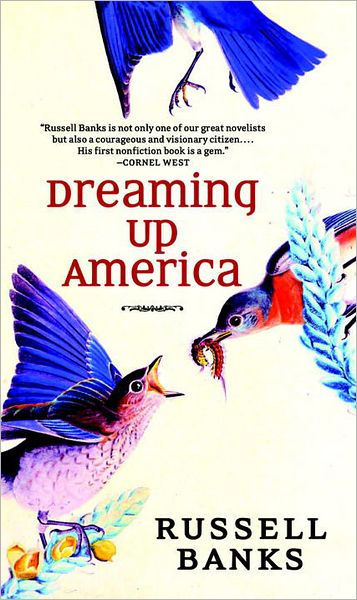
Barnes & Noble.com
He continues: “I was trying to point indirectly to that age-old conflict between our material goals and the spiritual justifications that lie at the heart of the American dream, and also now at the heart of American history. That conflict has made us murderers, over and over again. Thus, the true American is a killer. The true American is a cynical, materialistic grabber on the one hand reaching for gold, yet he has an idealistic, even religious, sense of mission. When you tell yourself that big a lie, and you call it a dream, you’re going to end up committing acts of violence. It’s the nature of human psychology… And we have historically done exactly that, beginning in the 16th century when the Europeans first arrived off the coast of Florida…we were killing people and saying that we were doing it for some higher good. Not only that we also said we were doing it for their own good!” 2
He then speaks of nationalism as a kind of “secular religion, a substitute religion.”
“One of the healthiest and most important aspects of our American system of government is the separation of religion and state, the sharp distinction between our legal and political system on the one hand and her religious ideas and institutions on the other. One of the things this allows is great religious tolerance; but another thing it does is demystify national identity, to secularize it. This is a very good idea, something much to be desired, that the framers thoughtfully included international idea from the beginning.” 3
Then he addresses the nature and makeup of our beginning: “We began as an invention. We began as emerging, as emerged people. We’re essentially a Creole nation, a mixture, we have been that way since our very conception.” 4 Our democracy has continued by “embodying a conflict that is so destructive – and it is truly destructive – and also so creative.”
The creativity drove “the search for gold, the materialist impulse, and the search for freedom of religion.” 5
But it is our native inhabitants and our most forsaken inhabitants who have shown us the way, and suffered our folly. “The Native Americans were here before us…greeted us and taught us necessary skills for living in this new world.
“And the Africans, who were brought into this new world as the first immigrants that came after, but of the very seed of us that was and has always been in the mixture.” Without both groups we would be more like the Europeans, he says. Both groups give us much of the heft and texture of authentic identity that distinguishes America from the oppressive Old World it fled from.
“But ours has always been a racial obsession, since in my view the seed inside us has always been closer to the complex brew than it ever was to the picture we had of ourselves as white, Anglo-Saxon, Protestant northern Europeans…” 6
“I recognize that the way this country had was formed, and the way is still coming into being, is a powerful, combustible combination of energies. We would do well to recognize that we haven’t yet finished making ourselves, and that we can still take mindful control of that process. Our American history is taking us somewhere. We just don’t know where yet.” 7
This is a kind of thoughtful, tough-minded exhortation, but hardly leftist fire and brimstone. It points us toward hope, the refurbishing of our somewhat-tattered but rippling dream.
I first became aware of Banks somewhat belatedly as a graduate student in English, some years into my journalism career. So he struck me as not just a firebrand of my youthful ardor, but as a writer of innate and deeply honed wisdom regarding the human condition. The first book of his I read was Continental Drift, an exemplary story of the complexities of American immigration and identity. It proves to me today how timely his vision has always been, capturing the humanity behind our most vexing domestic policy today, besides gun control. Then came Affliction, a story of an ordinary American, a working-class man who seems to be losing his way, blighted by alcohol, almost shattering his existence, and yet who may have the dogged persistence of character that has helped define the best of America. Except this man slip-slides away, being too afflicted by the stuff that freedom-loving America enables. Your heart may bleed for Wade Whitehouse, with the pain of shared societal shame.
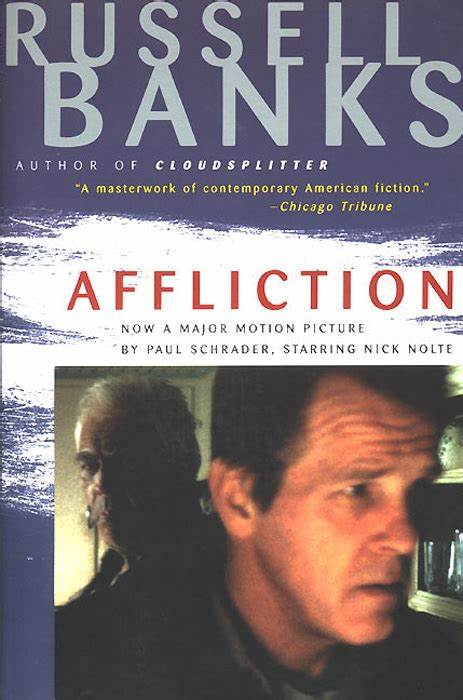
James Coburn (left) won an Academy award for best supporting actor as the tortured, abusive father of Nick Nolte in the film version of Russell Banks’s “Affliction.” Scribed
Then, though heart-breaking, came perhaps the book easiest to swallow because of its tender spiritual affirmation, as embodied in its title, The Sweet Hereafter. It universalized the individual American character, in the deeply symbolic children and in the suffering bus driver.
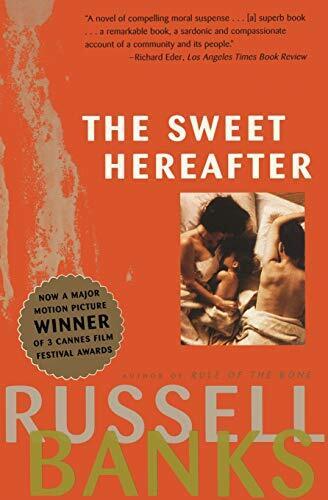
Rule of the Bone followed, updating in the grand picaresque tradition of Mark Twain’s Huckleberry Finn, with a brash youth as an American scalawag, yet intuitively connected to honesty and goodness, seemingly rare commodities in his defiant view, and utterly truth-dealing as Banks’s story reveals.

Barnes & Noble.com
What ensued was Cloudsplitter, most likely his greatest and most provocative reach for the bending arc of justice, which Martin Luther King articulated as a vision we aspire to but reach all too infrequently.
This was a profound, historically-informed reimagining of the legacy of radical abolitionist John Brown, perhaps the most controversial American patriot in our history. If you want to begin to understand the subject’s craggy mountaintop of complexity, I recommend this book (along with the biography of Brown that ensued some years later, John Brown, Abolitionist, by David S. Reynolds).
Written imaginatively from the point of view of Brown’s sympathetic but spiritually torn son Owen, Cloudsplitter allows us to follow the raging and curving depths of Brown’s river-running compulsion – visionary, deeply humane, yet just zealous enough for some to call him crazy and criminal, certainly in the times he lived and died. Not so coincidentally, Banks lived for decades just down the road from John Brown’s grave, in upper New York, along with those of 13 of the other men who were killed at the Harpers Ferry raid or executed afterwards.
Yes, Brown can be called a terrorist, and a “postmodern” writer, Bruce Olds, perhaps captured that aura more melodramatically than Banks. Alas, even most of the Black slaves Brown tried to liberate and marshal to his cause slunk away in fear of the nation’s mounting racial acrimony and desecration. But Brown was perhaps the most high-minded radical this country has ever known. Even in our day, it took Banks, a writer of uncommon courage and wisdom, to grapple this deeply with Brown’s bloody and sacred legacy.
As I commented in a review of the book: “One arrives as if waking from a long dream of America, risen from the nation’s subconscious. Owen and John Brown are archetypal men one may grow to love and perhaps fear, as does a son for a great, dominant father. As one grows to love and perhaps fear America itself, with its astonishing freedoms, its shifting moral ground and this devastating power.” 8
As Herman Melville wrote of Brown at the gallows, in the opening poem of his book of Civil War poems, he was “the meteor of the war… Hidden in the cap/ Is the anguish none can draw; So your future veils its face, Shenandoah!”
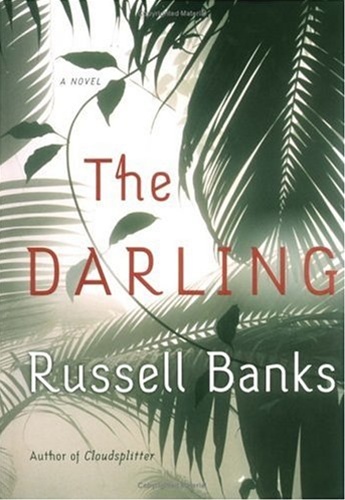
eBay.com
Banks followed by bringing the American concept of radicalism up to date in The Darling, to that of one defying the nation’s great moral quandary of the 1960s, The Vietnam War. And he did so with a brilliant stroke, with a woman as heroine, giving us a new way for America to see itself, a forsaken Joan of Arc leading us not to victory but to shadowed righteousness, in a manner of character perhaps akin to Ralph Ellison’s social era-defining book Invisible Man.
Among Banks’s other daring and remarkable books was Lost Memory of Skin, about another kind of outcast, a young homeless man who’s an ex-convict, but may or may not be a guilty sex offender.
In his latest and apparently last novel, The Magic Kingdom from 2022, Banks explores the idealism of American society through a son-like observer not too unlike Owen Brown. Based on a much more obscure historical figure living in an early 20th century Shaker community, it probes the fraught ways that even our most self-exalted traditional communities deal with human power, frailty, mendacity, and love. Margaret Atwood aptly characterized it as confronting “our longings for Paradise; also the inner serpents that are to be found in all such enchanted gardens.”
So, with Banks dead of cancer at 82, I yearn to hear from him, on his art form. Such a novelist of stature has come to understand the personal and human value of his preferred form, as Banks articulates in an insightful and humbled interview with Democracy Now’s Amy Goodman, in 2011:
“Novels seem to create, for me—or allow the possibility of creating for me—an alternative universe that’s comprehensive and large enough to let me think in ways I can’t think otherwise. The tradition of the novel and, I think, the rigor and the discipline of the art force me to be smarter than I am any other time and force me to be more honest than I am at any other time and force me to be more attentive than I am at any other time. So in some ways, a novel allows me to be better than I am the rest of the time in my life, and I think that’s why I prefer to work in that large fictional form.” 8
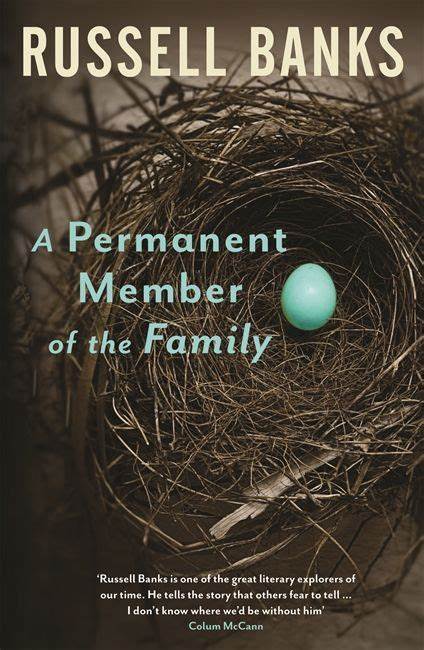
And yet, even in his short stories, continuing throughout his career, one senses how Banks’s fiction might transcend its teller, by distilling his characters’ lives through their incongruous acts, often of a person on the edge. The stories are “very telling of humanity’s crooked path, following perhaps the instinct to find succor or salvation in the past,” I wrote in reviewing his last collection A Permanent Member of the Family.
This instinct arose in “their yearning and risk, suffering and loss,” and the author’s “sage understanding of the deep corners of human nature.” 9
_________
1 Among Mr. Banks’s literary honors and awards were a Guggenheim Fellowship, The John Dos Passo Award, O’Henry and Best American Short Story Awards; the inaugural Thornton Wilder Prize, The American Book Award; and the Literature Award from the American Academy of Arts and Letters. He was also a Pulitzer-finalist twice, for Cloudsplitter and Continental Drift. He was President of the International Parliament of Writers, and the founding past-President of Cities of Refuge North America.
2 Russell Banks, Dreaming Up America, Seven Stories Press, 2008, 116
3 Banks, Dreaming Up America, 116-117
4 Banks, Dreaming Up America, 121
5 Banks, Dreaming Up America, 126
6 Banks, Dreaming Up America, 126
7 Banks, Dreaming Up America, 127
8 Kevin Lynch “Abolitionist’s Story is as Dangerous as America,” The Capital Times. May 1, 1998, 13
9 Kevin Lynch, The Shepherd Express, Feb. 2, 2014, https://shepherdexpress.com/culture/books/family-stories/


